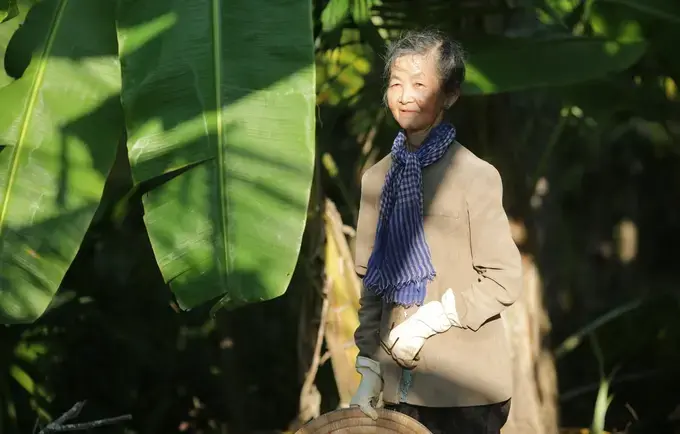Viet Nam is one of the most rapidly ageing countries in the world. People aged 60 and older make up 11.9 per cent of the total population in 2019, and by 2050, it will rise to more than 25 per cent. By the year 2036, Vietnam will go into the aged population, transitioning from an “ageing” to an “aged” society. This demographic change happens in Vietnam not only because of a reduction in mortality and an increase in life expectancy, but also and largely because of a sharp decline in fertility. The fertility decline in the past decades have had a significant impact on the population structure of Vietnam, leading to rapidly ageing process.
An ageing population poses both social and economic opportunities and challenges and requires changes in the economy. A rapidly ageing population might also lead to a lack of workers in the future, as well as an increased need for social security for older people, especially older women. As the proportion of older people increases, so does a demand for social services to meet their needs. Viet Nam has a relatively well developed social protection system, as yet, the approach to social protection for the older people requires further strengthening, and there is need to expand the coverage of the national social protection system and the social assistance programme. In addition, it is important to recognize that many elderly people are able to and willing to work beyond the retirement age, and economic opportunities need to be provided to the elderly population.
The need for social and health care increases with age, and every effort has to be made to increase the period of life staying healthy. Risks of disability also increase with age, which requires additional care. In Viet Nam, care is often provided by family members, but increasingly, such family support may be difficult for older people, particularly in urban areas.
Age discrimination can happen in many countries, but it is not frequently addressed. Unfortunately, older people, particularly older women, tend to be exposed to domestic violence. The rapid increase in the older population and the resulting increase in the care burden on younger family members can increase a tension and the level of stress that can manifest in the elderly abuse. However, in Viet Nam, reporting on, or admitting the elderly abuse is considered to be a taboo, and a private matter, which is kept within the family.
Population ageing is certainly an area that needs close attention of policy and decision makers using a life cycle approach. Although ageing population poses social and economic challenges, the right set of policies can equip individuals, families and societies to address these challenges and to reap its benefits. In so doing, it is critical to prepare young people to grow, plan and prepare for the older age, so that population aging is addressed in a coherent and comprehensive manner.
What we do
UNFPA Viet Nam has supported the Government in policies and programmes responding to population ageing. The key of UNFPA Viet Nam’s support is to apply a life-cycle approach toward population ageing and to consider older people as a resource, not a burden, for sustainable development. The life-cycle approach endorses a rights-based, gender-sensitive, comprehensive approach to population ageing, emphasizing the sequential events and developmental steps throughout a person’s life.
UNFPA supports Viet Nam in:
- Development of the legal and policy framework adopting life-cycle and gender transformative approach for the protection of the rights of individuals into old age and their empowerment and social inclusion in development and humanitarian settings, particularly with regard to access to high quality health care, prevention, and response to domestic violence, employment opportunities and financial security;
- Development of the comprehensive care system, including institutional and community care, with focus attention to vulnerable groups such as ethnic minorities, PWDs, and survivors of domestic violence;
- Evidence-based policymaking on ageing and care as well as for communication to the public on ageing taking life-cycle and gender transformative approach; and
- Facilitation of private sector investment in the provision of care for older persons, as well as in the application of digital technology in elderly care.


